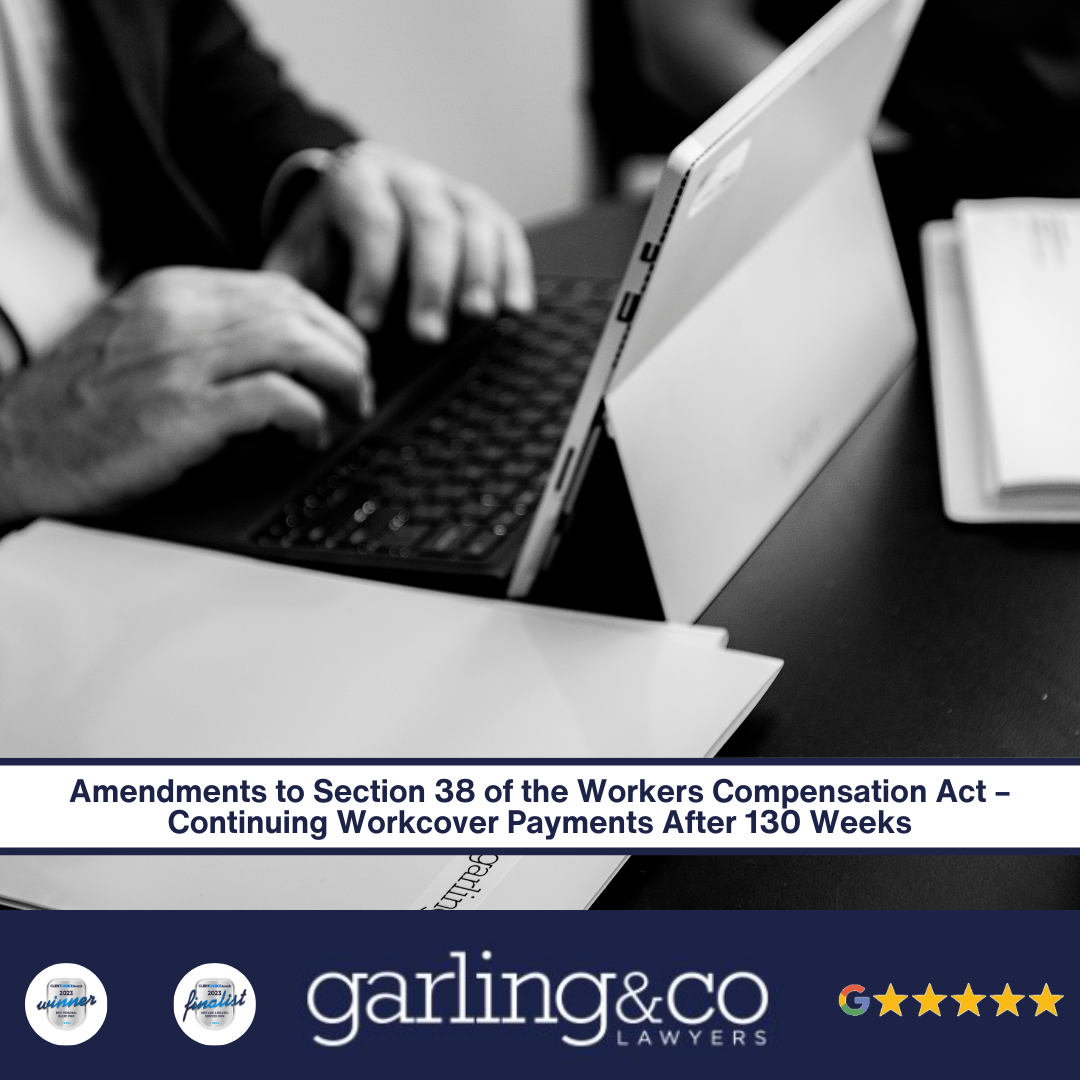
These changes affect a workers' entitlements to weekly WorkCover payments after 130 weeks (i.e. the second entitlement period).
The Workers Compensation Act added the following definitions:
- “A worker with high needs” means a worker whose injury has resulted in a permanent impairment of more than 20%; or an approved medical specialist has declined to make an assessment of whole person impairment on the basis that the injury has not reached maximum medical improvement.
- “A worker with highest needs” means a worker whose injury has resulted in a permanent impairment of 30% or more.
Section 38 states that at 130 weeks (2.5 years) to be entitled to continue to receive workers compensation after this time, the worker must:
(a) Apply to the insurer in writing for continuation of weekly payments
(b) Have returned to work for a period of not less than 15 hours per week; or
(c) The worker has been assessed as having no current capacity for work.
If your assessment of whole person impairment is 20% or less, you need to satisfy one of the above to continue to receive weekly payments of compensation.
A worker with high needs however (that is worker who has a 21% whole person impairment assessment or greater) is entitled to continue to receive weekly WorkCover payments after 130 weeks only by applying to the insurer in writing before the end of the second entitlement period for continuation of weekly payments.
Such workers do not need to be working at least 15 hours per week. The insurer however is still entitlement to conduct a Work Capacity Assessment at the end of the second entitlement period and thereafter at least once every 2 years.
If you are a worker with highest needs (an assessment of 31% or greater) an insurer must continue to pay weekly compensation and is not to conduct a Work Capacity Assessment unless the worker requests that to be done. This effectively means that the insurer will be required to pay weekly payments of compensation if the injured worker continues to submit a WorkCover Certificate of Capacity.
For more information on Workplace Compensation Claim Success, read our guide here.












